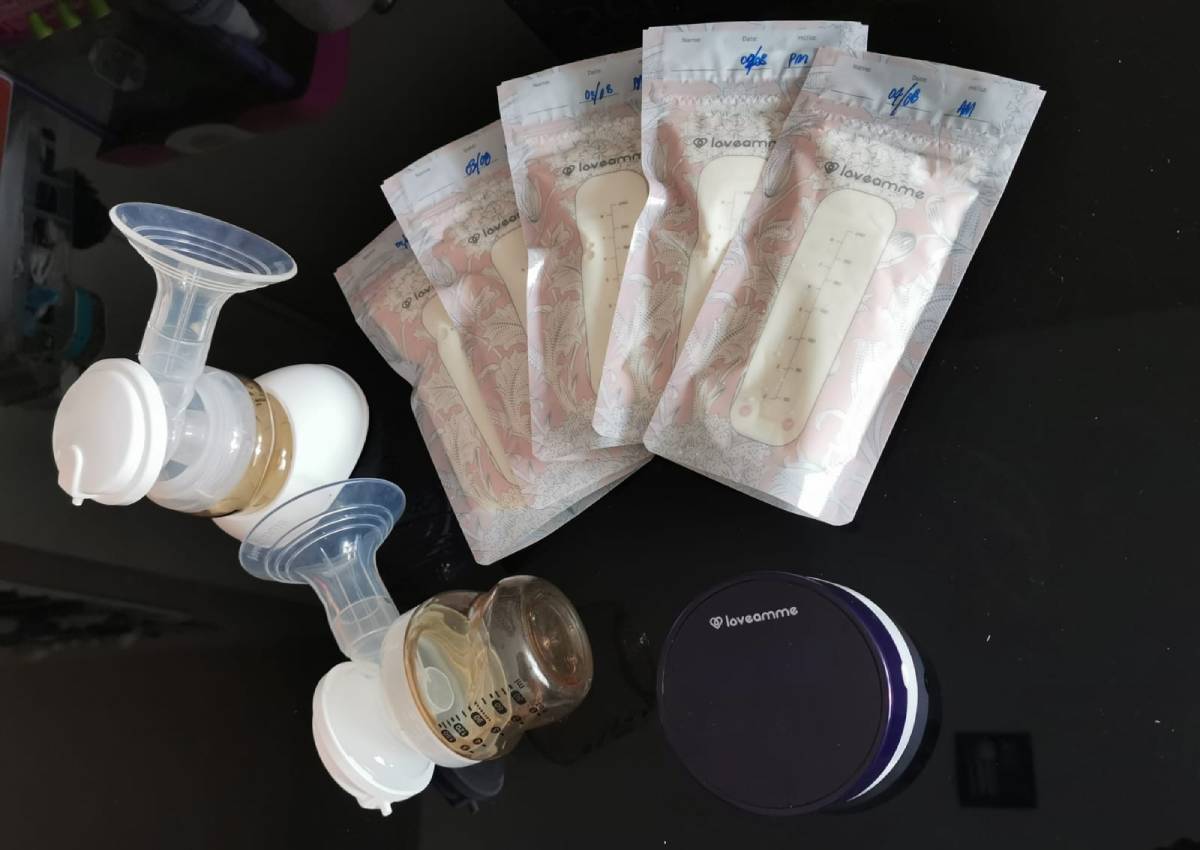This Singaporean mother has been 'breastfeeding' for 10 years and has no plans to stop


 PUBLISHED ONAugust 04, 2020 6:27 AMByCandice Cai
PUBLISHED ONAugust 04, 2020 6:27 AMByCandice CaiIf you were ever a mum who struggled with your breastmilk supply, you may have heard of Audrey Yeo.
After all, the 34-year-old made a name for herself locally and even internationally, for donating her excess breastmilk.
And that's because she used to produce more than five litres of breastmilk, in a day. That's probably more than what an average adult consumes in a week.
“On day three of pumping (after giving birth to her firstborn), I was already getting 150ml, when usually mummies would be getting 30 to 40ml,” shared Audrey.
Due to her oversupply, Audrey pumped eight times a day, for an hour each time, just to empty her breasts.
Put simply, pumping was basically another full-time job. Saddled with taking care of her baby and also making time for herself, the former school band instructor managed an average of just three hours of sleep each night.
The stress made her take a break from pumping for a year after her firstborn child turned one. But for her second child, she resumed her punishing schedule.
She accumulated an excess of breastmilk as her baby could not consume everything she was producing. Instead of throwing away the milk, she donated them instead.

Through word of mouth, she became known to mummies who wished for their babies to consume breastmilk due to its immunity-boosting properties but were unable to maintain their own regular supply. This was especially if their babies were born with medical issues or required surgery, said Audrey.
At times, mothers who urgently needed the milk would turn up at her door to receive the breastmilk just after she'd finished pumping, said Audrey.
The "fresh milk" as Audrey calls it, would still be warm to the touch in such cases. The parents, however, were appreciative because with just one visit they could oftentimes receive more than one litre of milk, which would be sufficient for many feeds.
But the pressure to keep her excessive supply of breastmilk flowing, not just to feed her own kids but as a source for others, soon got to the mother of three young children, now aged 10, seven and five.
“I was stressing myself over providing for other people’s babies that I was going bonkers myself," she said.
“I asked everyone who took milk donations from me to stop spreading my name so that I didn't get the stress to continue."
She initially decided to stop expressing milk more than two years ago, after her third child turned two.
But to her surprise, she found it hard to kick the "habit" that she'd developed over the years by then.
When she was down to what she thought would be her last two pumps, producing about 500 to 800 millilitres a day, Audrey became emotional when talking to her best friend about stopping.
"She was like telling me, why do you talk like you’re going to break up with your BF like that?" she said with a laugh.
The expected "break up", however, didn't happen. A project to develop a series of locally-designed breast pumps landed on her lap, and Audrey made a U-turn on her initial decision to stop.
Her personal experience spending endless hours pumping led her to create a system that could more efficiently express milk.
She currently works with LoveAmme, the company behind the breast pumps she helped develop. She is also an independent breast pump consultant for mummies who wish to learn how to use a breast pump or to re-lactate with the help of a pump.
And it's a job which Audrey finds extremely fulfilling. "Everybody has something that gives them satisfaction. For some people, it may be a promotion, or earning this amount at this age. For me, I really like to help people."

So what does she do with her breast milk now?
Audrey expresses twice a day, for no more than 20 minutes each time while having her meals to maintain her current yield of 500ml to 800ml. It's a comfortable schedule which she says is "so much more manageable".
She no longer donates her milk, keeping it instead for her children as she is convinced of its immunity-boosting properties. Using the breast milk as a supplement, she mixes it with regular milk for her youngest child, and passes them off as milk popsicle treats for her older kids.
While she says her children rarely fall sick, Audrey admitted: "There’s no way to prove whether it's breastmilk or any other things, honestly. But what I see is that their immunity is so good that I really think it’s the breastmilk that is helping them. That made me want to continue.
"When will I stop? I’m actually keeping it neutral, I’m not going to set a date. So what I tell myself is if I don’t have any more milk, I won’t force myself to increase my milk supply again."
Singapore's first donor human milk bank was launched in 2017 at KK Women's and Children's Hospital, which provides pasteurised breast milk for premature and sick newborns "whose mothers are not able to provide enough breast milk to support their babies’ needs".
Breast milk is beneficial, especially to vulnerable newborns, because it contains enzymes which help with digestion, nutrients, growth factors, hormones and protective antibodies.
Some studies have shown that breastfed children have lower blood pressure and total cholesterol, as well as a reduced risk of obesity and diabetes later in life.
Donors have to be healthy and go through blood tests for various diseases before they can donate.
Another channel where mummies can donate or request for milk is the Facebook group Human Milk 4 Human Babies, which is the local chapter of a global network. Arrangements are made directly between the donor and recipient.
For more original AsiaOne articles, visit here.